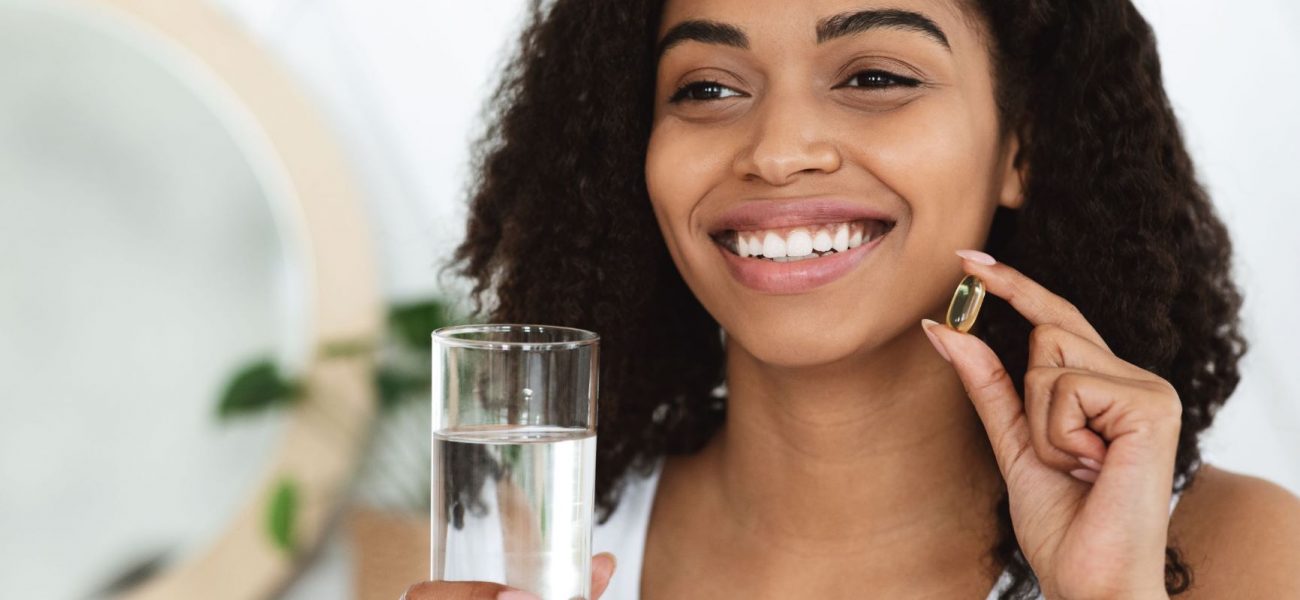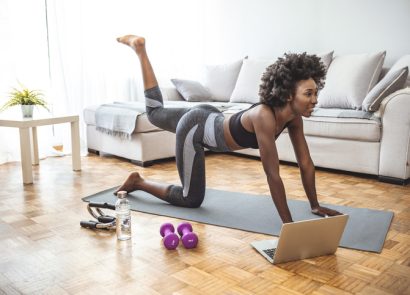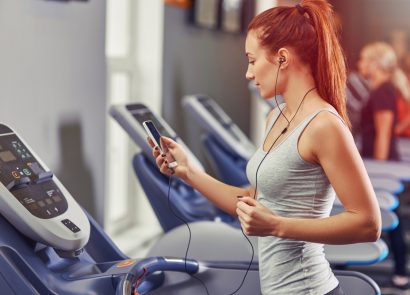Do you ever feel flummoxed by all the supplements and vitamins on sale in your local health store? If you want to gain more energy, feel younger, look thinner or be calmer, there’s a clever little pill out there that will claim to answer all your prayers. But which ones really work? And should we be taking them in the first place? In an ideal world, we’d be getting all our vitamins and minerals from our diet – but sometimes life gets in the way of a perfectly balanced menu, which is why taking a vitamin supplement really can come in handy.
“Supplements are often necessary, as modern life causes more stress on the body which leads to the need for extra support,” explains Rick Hay, director of nutrition at Healthista. “Sometimes diet is not enough, especially if we have acute conditions that can become chronic, and this is where supplements can help to relieve, treat and, often, even cure.” So read on for our pick of the best vitamins and herbal supplements to meet all your body’s needs!
Vitamins A, B, C and D
The most well-known vitamins have a reputation for a reason: they’re crucial for our health. A vitamin D supplement has long been stocked in the cupboards of many, but B vitamin supplementation in particular has become a hot topic, owing to the growing popularity of veganism. To delve deeper into the world of these nutrients, take a look at our article on the vitamins you definitely need in your life.
Magnesium supplements
It is estimated that 70 percent of women in the Western world are deficient in this crucial mineral. Known as ‘nature’s tranquiliser’, it is needed for more than 300 biochemical reactions in the body, including the regulation of serotonin; a positive neurotransmitter in the brain that is essential for a stable mood. “Magnesium has a role in hormonal regulation and may also help blood sugar balance, which can help with mood issues,” says Rick. Symptoms of deficiency can include PMS, poor sleep, panic attacks and depression.
A study published in the Public Library of Science Journal found that people who supplemented with magnesium for six weeks saw a significant improvement in their levels of depression and anxiety. Magnesium is a good choice if you’re looking for sleep supplements, as it can also be used as a sleeping aid. Magnesium supplement benefits include improved sleep, reduced cramps and lowered stress levels.
So which is the best magnesium supplement? There are lots on the market, but we recommend Holland & Barrett’s Magnesium Tablets or FutureYou’s Magnesium+.
Vitamin E
“This vitamin is an antioxidant, anti-inflammatory and absorbs energy from UV light, preventing free radical damage to the skin,” says Rick. “It helps minimise fine lines, wrinkles and sagging. It also works together with vitamin C to strengthen cell walls.”
Iron-rich foods and supplements
Anaemia is a common condition, with recent studies showing that 29 percent of non-pregnant women and 38 percent of pregnant women are affected by it. Menstruation can play a huge part in low blood iron levels, which can leave you feeling lethargic, weak, dizzy and short of breath. “The daily recommended intake of iron for men is 8.7mg, compared to 14.8mg for women of menstruating age,” says Dr Dawn Harper, TV medic. “Studies have shown that women with low levels find immoderate movement more difficult. Intensive exercise, such as endurance training, can actually deplete iron levels as part of an inflammatory process.”
There are plenty of iron-rich foods on the market, but the ones to watch out for include pumpkin seeds, red meat, leafy green vegetables, dried fruit and legumes. “Humans absorb iron better from animal sources than they do from plants,” explains Dr Dawn. “We assimilate anything between five to 35 percent of the iron we eat. Dairy products, antacids and tannins in tea and coffee may reduce absorption, while vitamin C is proven to aid absorption.”
Have you been worried about consuming a surplus of iron? Nutritional supplements are often used as an easy solution to deficiencies. In theory, we should be able to keep optimum levels up with a balanced diet, but heavy periods, full-on exercise regimes and vegan eating habits can alter our absorption of this magic mineral. It’s also important not to take iron supplements beyond the dosage that your GP or pharmacist advises, as this can lead to joint pain, irregular heart rhythms, hair loss and other serious health issues. In short, it’s vital to find a balance, especially if you’re partial to long workouts or experience heavy periods.
Fibre supplements
According to new research, only a fifth of us know how much fibre we should be having, so it’s no wonder that 90 percent of UK adults are not getting the required amount in our diets. But first things first: what actually is fibre and what do we need it for? Harley Street nutritionist, Rhiannon Lambert says: “Fibre is crucial for healthy digestion, so it’s a key factor to consider when planning nutritious and well-balanced meals. The recommended daily intake of fibre for an adult is 30g and it’s easy to add more fibre into your diet with wholegrains, fruits and vegetables.”
However, you can also use supplements to up your fibre intake. We recommend Holland & Barrett Fibre Force 100 Capsules to help you reach your daily target.
Zinc supplements
According to nutritionist Rick Hay, this mineral helps your skin heal after an injury and is needed to keep cell walls stable. “Zinc may protect your skin from UV damage because of the way it behaves in relation to other metals in your body, like iron and copper,” he says. “A symptom of too little zinc is an itchy rash that looks like eczema, but doesn’t get better when you put moisturisers on it.” Zinc can also be used as a traditional cold and flu remedy.
Collagen supplements
“Collagen is responsible for skin elasticity, and plays an important role in joint and bone health,” says Rick. “Although certain foods contain collagen, those who want smoother skin might need to look into a dietary supplement to increase intake. Your body turns collagen you eat into amino acids, which maintain the skin’s hydration, texture and resilience.”
Turmeric supplements
This yellow-coloured spice has been used for centuries across Asia not only to flavour curries, but also as a traditional remedy to reduce inflammation, owing to its high levels of curcumin. “Turmeric has many uses,” explains nutritional biochemist Jamie Christie at Lifeplan. “It’s a powerful anti-inflammatory and can help stave off arthritis, reduce cholesterol, reduce depression and help with dementia.” The best curcumin supplements contain piperine, substantially increasing their effectiveness. Curcumin is also fat-soluble, so it may be a good idea to take it with a meal high in unsaturated fats.
Calcium supplements
Do you remember being given milk in the playground? We’ve all got memories of drinking a carton with the promise it would make us ‘big and strong’, but milk isn’t the only calcium-rich food source out there. “Calcium can be found in milk, cheese, sardines, tofu and yoghurt,” says GP Dr Paul Stillman. “The NRV (Nutrient Reference Value) for calcium is 800mg; half a pint of milk, a 150g pot of yoghurt, a 70g can of sardines or 60g tofu all contain around 300-350mg calcium. 100g of spinach contains about 150mg, 100g of broccoli about 40mg, a tablespoon of sesame seeds 140mg and 20 almonds 50mg.” If you’re struggling to get the right amount of calcium in your diet, you can use a calcium supplement to up your intake.
Omega 3 supplements
Fatty fish is of course a great source of omega 3, but there are also supplements you can take to top up your levels of omega 3 fatty acid. “Omega 3 fatty acids are fats that your body can’t make, but needs in order to build cell walls,” says Rick. “Besides helping your brain to function properly, fatty acid benefits the skin by regulating oil production to boost hydration and delay the skin’s ageing process. Algal oil is a good alternative to a fish oil supplement for vegetarians and vegans.”
Iodine supplements
“Iodine aids the production of thyroid hormones, which help to keep cells and the metabolic rate healthy,” says nutritional expert Dr Emma Derbyshire from HSIS. You can increase the amount of iodine in your body with the help of a multivitamin. Dr Derbyshire recommends taking a supplement that includes selenium, iodine and magnesium. “Selenium plays a huge role in reproduction, thyroid hormone metabolism, DNA synthesis and protection from oxidative damage,” says Dr Derbyshire. “Meanwhile, magnesium helps the conversion of energy from carbohydrates, fats and protein, and calms the nervous system.”
Supplements for anxiety
One in six people report experiencing a common mental health problem such as anxiety and depression in any given week in England, according to Mind. Read on to discover supplements that can help stabilise mood.
St John’s wort
If you’re feeling a bit blue, this gentle yet potent herb could put a smile back on your face. Several studies have found it to be as effective as conventional medicine when it comes to treating depressive symptoms. This is down to two compounds it contains called hypericin and hyperforin, which have been shown to boost the feel-good brain chemical serotonin. What’s more, it can also help to boost the effect of other happiness-bolstering brain chemicals including noradrenaline and dopamine.
5HTP
Oily fish, turkey, chicken, cheese, beans, tofu and eggs contain a mood-boosting amino acid called tryptophan, which helps to raise levels of the happy hormone, serotonin. However, you have to eat an awful lot of it to improve your mood, so it’s worth supplementing with 5HTP (or 5-hydroxytryptophan to go by its proper name), a more effective kind of tryptophan, which comes from a West African shrub called Griffonia simplicifolia. “Studies have shown that people who supplemented with 5HTP achieved a greater decrease in depression than those using antidepressant drugs,” explains top nutritionist Patrick Holford. “It is very well absorbed, with about 70 percent being taken into the bloodstream, and much of that crossing into the brain.”
Joint supplements
An unsung hero of the body, we only think about our joints when we hear them popping as we attempt a downward dog, or creaking as we get up from a chair. But our joints are responsible for a lot more. Not only do they keep our body flexible, they also keep our bones (wait for it) joined together. Our joints and bone health should be a priority at all ages, but more so as we head into middle age, as our bone mass starts to decrease, according to the Therapeutic Advances in Musculoskeletal Disease Journal, which also reveals that bone deterioration can predispose us to osteoporosis.
The world of supplements can be a confusing one, so to narrow it down, we looked at the main players. “Our bones are made up of minerals – mainly calcium and phosphorus – with small amounts of magnesium, manganese, sodium and bicarbonate,” says Dr Stillman. “Calcium is important at all stages of life; particularly in the first 30 years or so when bone mass is increasing and also after the age of 50, as it starts to decrease. Focus on getting the right levels of calcium and vitamin D (which helps us absorb calcium), as this will help to reduce loss of bone mass.
“As we rely mainly on sunshine for vitamin D, it can be beneficial to take a supplement in autumn and winter when the days are darker. Low levels of zinc and copper have also been linked with poor bone health, and supplementation of these trace minerals might be a good idea, but always consult your GP first.”
What are the best supplements for women?
Agnus castus
Do you suffer from mood swings every month? This is a great herb to take if you suffer from PMT or are going through the menopause, as it helps to balance your hormones naturally. “It works on the pituitary gland, which is the gland that sends the message down to the ovary to release hormones, and it can help to increase certain hormones if they are too low and decrease them if they are too high,” explains top women’s health expert Dr Marilyn Glenville. This is particularly helpful when you are perimenopausal – this is the stage during the years leading up to the menopause, and it is often characterised as a time when your hormones fluctuate wildly.
Iron
“Most menstruating women need iron; particularly those who experience heavy blood loss. Interestingly, iron deficiency also increases blood loss,” says Henrietta Norton. “However, do get your iron stores checked – a good comprehensive test will include your ‘total iron binding capacity’ and ferritin levels – as taking iron unnecessarily can be toxic and reduce body stores of other important nutrients. Some good supplements use food sources such as beetroot powder, so that the body can use what it needs and easily eliminate what it does not.”
Ashwagandha
“This is by far my favourite herb for women and I use it a lot in my clinical practice,” says Henrietta. “Classified as an ‘adaptogen’, this nourishing plant has been used in Ayurvedic medicine in India for thousands of years to treat all manner of health complaints. Among its many accolades, it has been shown to reduce anxiety and stress, as well as support the body’s response to hormonal changes. Being an adaptogen, it works with the body to find its own equilibrium and is the perfect all-round health-booster.”
Pregnancy supplements
There are many factors that can affect a woman’s ability to conceive and carry a baby to full term, but stress levels, diet and micronutrients can also play an important role in fertility. In recent years, the proportion of women aged 18-64 who are not achieving the Lower Reference Nutrient Intake (LRNI) in vitamin A has doubled from five percent in 2008-9 to 10 percent, as has folate intake, from three to six percent.
“For anyone looking to conceive, I would recommend a formulated supplement that is designed to be taken from 12 weeks, right up to birth”, says Dr Derbyshire. “When buying a formulated supplement, look for ingredients such as folate, which helps to prevent spinal tube defects, folic acid, iron, zinc, calcium, vitamin C, and vitamin D.” In the run-up to trying for a baby, a prenatal vitamin that contains folate, magnesium (which is good for stress relief) and vitamin D, can be really beneficial.
Menopause supplements
At menopausal age, women experience hormone fluctuations that can result in a range of issues, from mood swings to hot flashes. “In older women, the micronutrient deficiencies that are most common are iron, calcium, and potassium,” says Dr Derbyshire. As muscle density decreases in women as they age, it’s important to make sure that you keep your calcium, potassium and iron levels topped up – iron in particular, as in the lead up to menopause, you can suffer from heavy periods. “Heavy menstrual cycles can be eased by topping up on supplements such as iron and evening primrose oil; both are great alternative treatments to alleviate pain and discomfort during the menopause.”
Red clover
“The flavonoid phytonutrients in red clover mimic the hormone oestrogen, so studies have shown it to be effective during perimenopause at balancing oestrogen levels and reducing symptoms such as hot flashes,” say the experts at Indigo Herbs.
What are the best supplements to boost the immune system?
Keep your immune system in tip-top condition with these supplements.
Co-enzyme Q10
Co-enzyme Q10 is an essential nutrient that’s crucial for keeping cells in our body buzzing with vital energy. It protects cells against free radical damage and helps to stimulate the immune system. Unfortunately, our natural reserves decrease as we get older, and low levels have been linked to high blood pressure, heart disease, periodontal disease and obesity, so taking a supplement might be your key to longevity. “Not only does it help to boost energy production at a mitochondrial level, it also shows promise in the area of cardiovascular health, which is one of the nation’s main causes of premature death,” says Rick.
Reishi mushroom
“It’s the polysaccharides in reishi that can boost immunity, increase energy and promote a good mood,” say the experts at Indigo Herbs. “Spiritual adepts in Asia have prized the tonifying properties of this mushroom for thousands of years.”






















